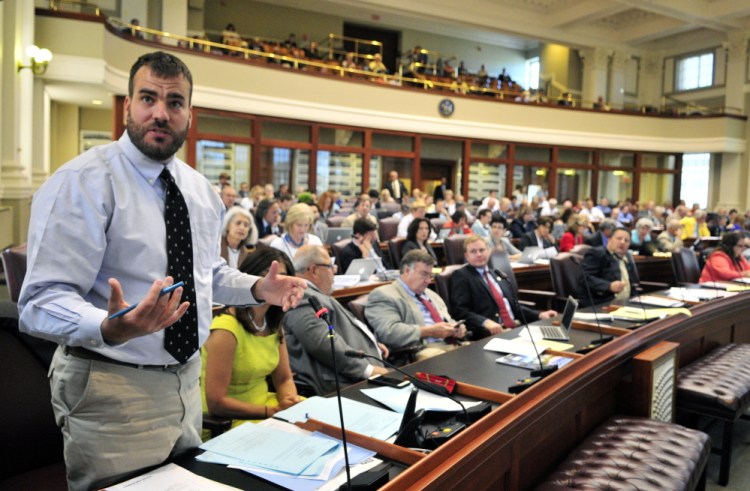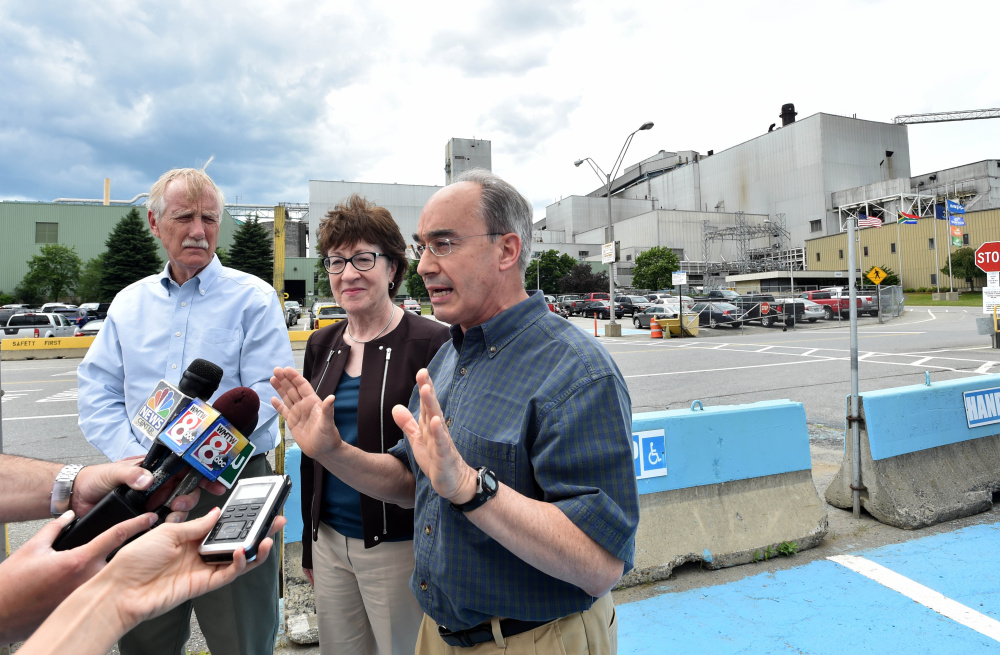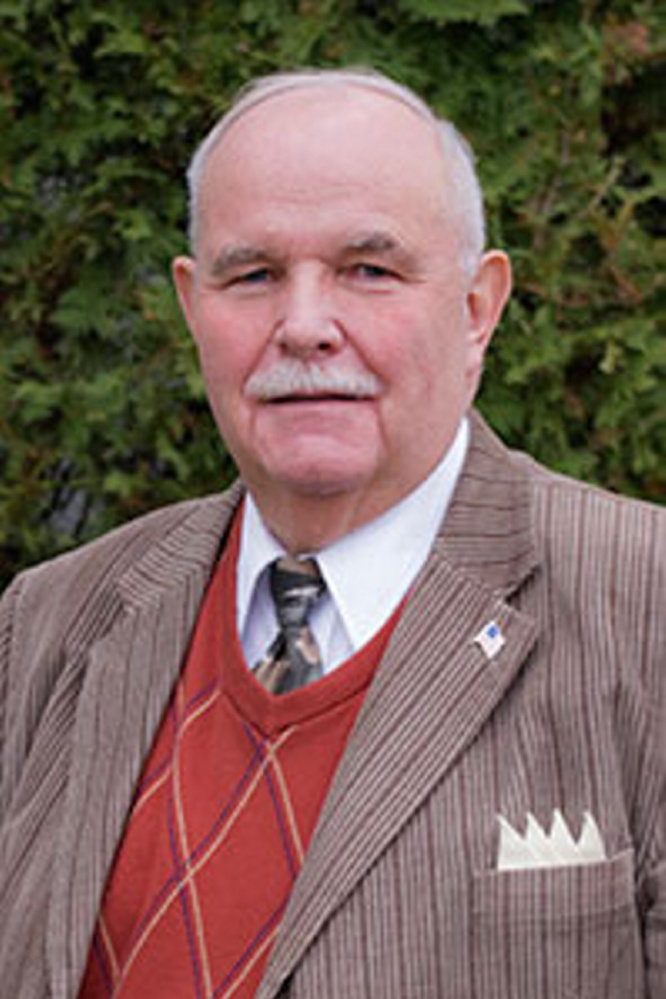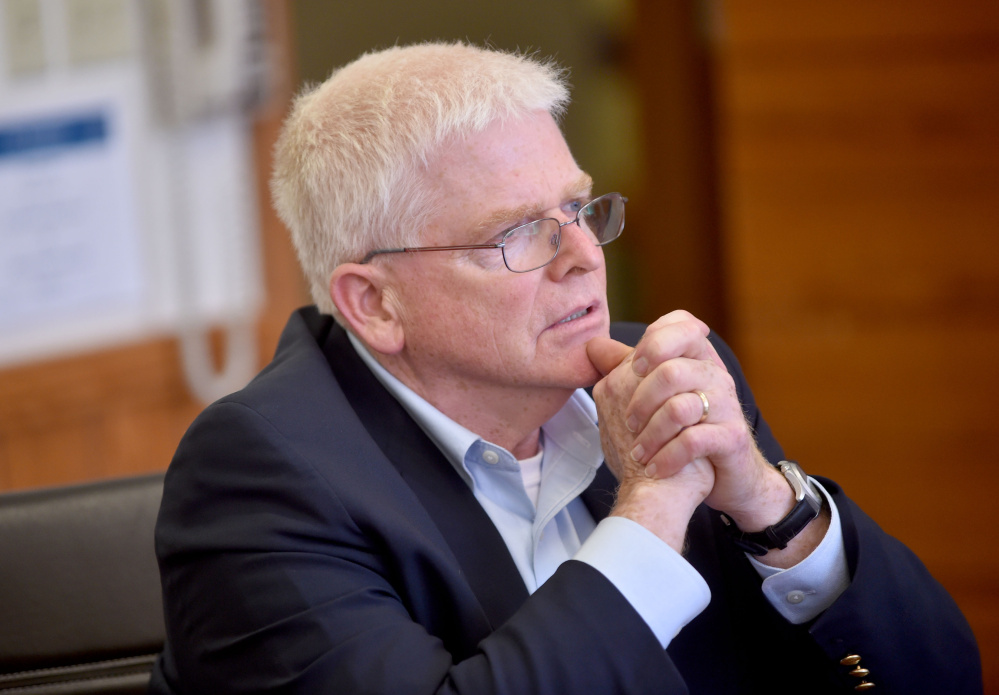The state’s House majority leader on Friday called on Gov. Paul LePage’s office to work with a federal team deployed to help Maine’s forest products industry come up with a long-term economic plan for the industry, but the team itself is not concerned about the governor’s criticism of the effort.
“Saving our forest products and pulp and paper industries is a critical issue for rural Maine,” Rep. Jeff McCabe, D-Skowhegan, said in a prepared statement released Friday morning as the federal team wrapped up its three-day visit to the state at Skowhegan’s Sappi North America paper mill. “No single one of us has the solution all by ourselves, so we need the governor and his staff to join us to get this done. We all need to work together as a team to fight for these jobs.”
Officials from the Economic Development Assessment team Friday afternoon agreed that collaboration will be key as their work continues, but when pressed about remarks made by the state’s top forest products adviser and LePage saying the state wouldn’t be joining the effort, they shrugged them off or said they believe the state will eventually be more open to working with them.
“(LePage) has always worked with the industry and he’s been a champion of it, so I don’t see that changing,” said Patrick Strauch, executive director of the Maine Forest Products Council and co-chairman of the team planning committee, Maine’s component. “When the industry needs resources, we always work with federal and state agencies. That’s not going to change.”
When asked about the state government’s resistance, U.S. Deputy Assistant Secretary of Commerce for Economic Development Matt Erskine said Friday that his agency has been in communication with the state and there has “been good correspondence between (U.S. Secretary of Commerce Penny) Pritzker and the governor.”
“Every state is different,” Erskine said when asked what role state governments have played in past EDAT deployments. “There will be some things that will come out of our work on the EDAT where there will be clear roles for the state to play.”
The team, composed of more than two dozen federal officials from eight agencies, including Erskine, arrived in Maine on Wednesday for a three-day tour of the state with industry leaders in an effort to gain an understanding of the challenges and assets of the forest products and paper industry.
When the team’s formation was announced in July, LePage, in a letter to Pritzker, called the effort “another failed stimulus package” that will only provide “false hope” for the state’s forest industry. He also said it will be impossible for the state to find common ground with the commerce department until it reconsiders tariffs that were put on Canadian paper imports in November. On Thursday, LePage’s top forest products adviser, Rosaire Pelletier, said he wasn’t aware of the goals and plans of the economic team and that he personally has no plans to work with the EDAT team, but would instead wait to see what it came up with.
LePage’s press secretary, Adrienne Bennett, and Peter Steele, the governor’s director of communications, have not responded to requests for comment aside from releasing the governor’s letter to Pritzker.
Team officials Friday reiterated the need for collaboration, but said they were not concerned about LePage’s stance or his characterization of the effort.
Yellow Light Breen, president and CEO of the Maine Development Foundation and co-chairman with Strauch of the EDAT planning committee, said he considers LePage’s letter to mean “the administration is taking a wait and see approach, which is fine.”
“We know they’re invested in the forest products sector,” he said. “Once this results in something really tangible, it will need to be all hands on deck.”
The team was formed in the wake of Madison Paper Industries closing in May. It was the fifth paper mill in the state to shut down within two years and has had a ripple effect throughout the economy of the region as well as related industries.
“Where I live, people’s jobs and way of life are at stake, and so many have already lost so much,” said McCabe, who is running for state Senate against Republican incumbent Rod Whittemore. He thanked the state’s congressional delegation “for helping to bring this federal team here to find ways to make our rural economy stronger.”
Whittemore, when contacted by the Morning Sentinel Friday, said he wasn’t aware of the team’s work and would have to read up on it before responding.
Officials on the federal team and the Maine planning committee said Friday that the visit was highly productive and a good starting point for developing initiatives to help the struggling industry.
The team, requested by U.S. Senators Angus King and Susan Collins, is a rare instance of the federal government marshaling federal resources to assist a region experiencing economic distress. Modeled after the national Disaster Recovery Framework, it has been deployed 30 times nationwide in its 40-year history, including to address the Deepwater Horizon oil spill and the collapse of New England’s fisheries.
It also comes with $7.7 million in federal money to invest in the forest products industry and to support and track the results of the team’s visit to Maine.
The state’s congressional delegation is part of the team, but no state government officials are. The Maine planning committee is made up of representatives from the private sector.
Much planning and research went into the three-day tour that concluded Friday, according to officials, who said the involvement of federal agencies and their work did not end this week, but rather will continue for the next three years with the development of an “action plan” and specific goals for the industry.
Collins, King and U.S. Rep. Bruce Poliquin, in a joint statement Friday, thanked the commerce department and members of the team for their efforts over the last three days and said their work is “an important first step and the beginning of a longer-term process among industry, local stakeholders, and federal agencies that can revitalize this critical pillar of our economy.”
The statement did not mention the response from state government. Representatives for Collins, King and Poliquin did not respond to questions specifically about the involvement of state government in the process.
Rachel Ohm — 612-2368
Twitter: @rachel_ohm
Send questions/comments to the editors.









Success. Please wait for the page to reload. If the page does not reload within 5 seconds, please refresh the page.
Enter your email and password to access comments.
Hi, to comment on stories you must . This profile is in addition to your subscription and website login.
Already have a commenting profile? .
Invalid username/password.
Please check your email to confirm and complete your registration.
Only subscribers are eligible to post comments. Please subscribe or login first for digital access. Here’s why.
Use the form below to reset your password. When you've submitted your account email, we will send an email with a reset code.